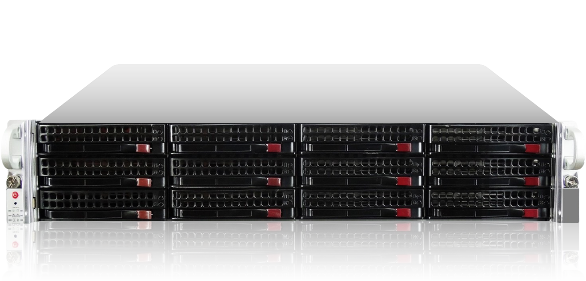Published on: October 16, 2024 | 5 minute read
When building or upgrading your IT infrastructure, choose the right server format to suit your needs. Rack Servers for Business and Tower Servers stand out as two top choices, each bringing something unique to the table. But herein lies the question - which one is the best fit for your growing business? Our guide Rack vs Tower Servers outlines the main features, advantages, and factors you should consider in making a well-informed decision.
Introduction: Choosing Between Rack and Tower Servers
To enhance your business's performance and scalability, choose the right server for your needs. On one hand, Rack Servers for Business offers flexible, space-efficient solutions. On the other hand, Tower Servers have always been a more conventional option. Knowing which choice best suits your business requirements will significantly influence your IT efficiency and give your company room to grow. We will now examine the key differences between the two and determine which might be the ideal choice for your company.
1. Understanding Rack Servers
Rack Serversare specifically designed to fit into standard rack frameworks. This feature makes them perfect for businesses that operate in high-density environments, or have expanding data center requirements. They offer several other advantages as seen below:
- Space Efficiency:
- Manageability
- Scalability:
Rack servers are compact, allowing for multiple servers to exist within a smaller physical space. This is especially beneficial for companies aiming to grow their operations, but have little room to do so for the meantime.
By combining servers in racks, IT administrators can oversee multiple servers from a single location, effectively enhancing overall efficiency.
For those planning to expand, rack servers help facilitate easy addition of new hardware Explore UNIXSurplus's wide range of Servers for Business
2. Understanding Tower Servers
Tower Servers are independent units that look like your standard desktops, but are built to handle enterprise-level tasks. Some reasons why they're a great fit for your business:
- Cost-Effectiveness:
- Simple Setup:
- Upgrade Potential:
Tower servers typically come at a lower price compared to their rack-mounted counterparts, making them perfect for small to medium-sized businesses (SMBs), or as options for startup companies.
Since they don’t require racks or specialized setups, tower servers can be installed quickly in various environments.
Tower servers provide the flexibility to enhance internal components such as storage and RAM, making them the ideal choice for growing businesses that don’t need that many servers.
3. Rack Servers vs. Tower Servers: Performance Considerations
When it comes to performance, Rack Servers are built for more demanding workloads. They are perfect for businesses that require significant computational power, need to host multiple websites or run complex applications. In contrast to this, Tower Servers are more appropriate for less intensive use for processes on the smaller scale of things. The latter is perfect for small businesses that need a single server to manage various office applications and basic data tasks.
4. Cost Efficiency
While Tower Servers usually have a lower initial cost, Rack Servers can offer greater value in the long run for growing businesses. The option to stack several servers in a smaller footprint, while lowering energy expenses and allowing easy management often results in significant long-term savings
5. Best Use Cases for Rack and Tower Servers
- Use Rack Servers for your Business if you're experiencing rapid growth and need scalable, high-performance solutions, especially in data center settings.
- For small to medium-sized businesses, purchase Tower Servers for a more budget-friendly and simple solution that doesn't require a dedicated server room or rack configuration.
Conclusion: Which Server Should You Choose?
Choosing between Rack Servers for Business and Tower Servers ultimately depends on your specific needs, budget, and future plans as a company. If you're managing a data center, or notice a rapid expansion of your IT infrastructure in the future, Rack Servers are the obvious pick. For SMBs looking for cost-effective and flexible solutions, Tower Servers offer great value. Ready to upgrade your server infrastructure? Explore our collection of Servers.
FAQs
1. What are the main differences between Rack Servers and Tower Servers?
Rack servers are designed to be compact and fit perfectly into data center environments. They are scalable and efficiently use less space. In contrast, tower servers are standalone units that are better suited for smaller businesses with less demanding computational needs.
2. Which is more cost-effective?
While tower servers typically have a lower initial cost, rack servers can lead to greater long-term savings in settings where growth and higher performance are essential.
3. Can I use both Rack and Tower Servers in the same environment?
Absolutely! Many businesses utilize a combination of both types based on their specific requirements. You can have rack servers for handling more intensive tasks, and tower servers for less demanding applications.
4. What kind of business should invest in Rack Servers?
Rack servers are particularly beneficial for large enterprises, data centers, and businesses expecting rapid growth. This is thanks to their scalability and centralized management capabilities.
5. Are Tower Servers outdated?
Not at all! Tower servers continue to be a favored option for small to medium-sized businesses because of their affordability, user-friendliness, and potential for expansion.


